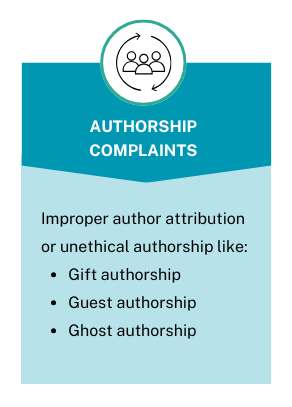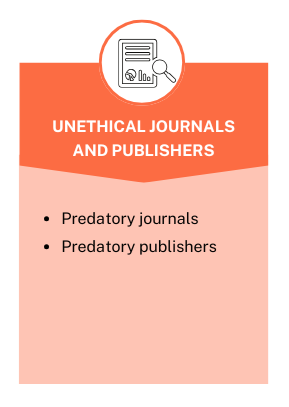Strategic Publishing: Responsible Publishing
Unethical Publishing Practices
Avoiding unethical publishing practices is important for researchers. This guide highlights several key topics regarding ethical publishing, including giving proper credit to authors, ensuring sources are acknowledged, avoiding predatory journals, and preventing redundant or duplicate publications.

The Committee on Publication Ethics (COPE) is an organisation dedicated to promoting integrity in academic publishing. Their website provides comprehensive guidelines, case studies, and resources to help researchers and publishers navigate ethical challenges in publishing. By offering advice on issues like authorship disputes, plagiarism, and data integrity, COPE empowers researchers to uphold ethical standards and avoid misconduct in their work.
Browse COPE ethical publishing guidelines and cases here.
Read and download COPE's best practices for ethical research and publishing here.
Most academic publishers have their publishing ethics policies and guidelines (click here for an example) on their websites. Please read them (in particular, terms and conditions for authors) carefully before submission.
Here, we discuss the three most common types of unethical publishing practices: Authorship complaints, Duplicate published content and Predatory journals/publishers. Practical advice, relevant policies, and external resources are provided to help researchers navigate these challenges while upholding integrity in their scholarly work.
 |
 |
 |
- Last Updated: Jun 27, 2025 9:52 AM
- URL: https://otago.libguides.com/strategic_publishing
- Print Page
